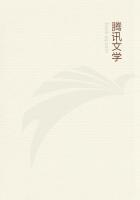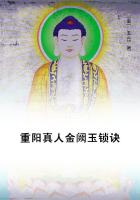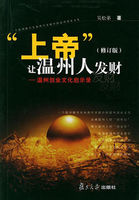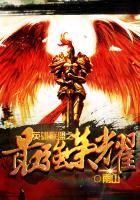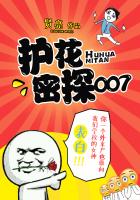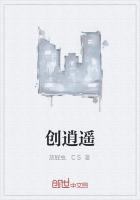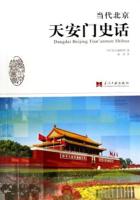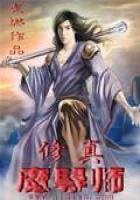Besides this, the story interested me as illustrating the terror which the police inspired during the reign of Nicholas I. The ingenious devices which they employed for extorting money formed the subject of another sketch, which I read shortly afterwards, and which has likewise remained in my memory. The facts were as follows: An officer of rural police, when driving on a country road, finds a dead body by the wayside. Congratulating himself on this bit of good luck, he proceeds to the nearest village, and lets the inhabitants know that all manner of legal proceedings will be taken against them, so that the supposed murderer may be discovered. The peasants are of course frightened, and give him a considerable sum of money in order that he may hush up the affair.
An ordinary officer of police would have been quite satisfied with this ransom, but this officer is not an ordinary man, and is very much in need of money; he conceives, therefore, the brilliant idea of repeating the experiment. Taking up the dead body, he takes it away in his tarantass, and a few hours later declares to the inhabitants of a village some miles off that some of them have been guilty of murder, and that he intends to investigate the matter thoroughly. The peasants of course pay liberally in order to escape the investigation, and the rascally officer, emboldened by success, repeats the trick in different villages until he has gathered a large sum.
Tales and sketches of this kind were very much in fashion during the years which followed the death of the great autocrat, Nicholas I., when the long-pent-up indignation against his severe, repressive regime was suddenly allowed free expression, and they were still much read during the first years of my stay in the country. Now the public taste has changed. The reform enthusiast has evaporated, and the existing administrative abuses, more refined and less comical than their predecessors, receive comparatively little attention from the satirists.
When I did not feel disposed to read, and had none of my regular visitors with me, I sometimes spent an hour or two in talking with the old man-servant who attended me. Anton was decidedly an old man, but what his age precisely was I never could discover; either he did not know himself, or he did not wish to tell me. In appearance he seemed about sixty, but from certain remarks which he made I concluded that he must be nearer seventy, though he had scarcely a grey hair on his head. As to who his father was he seemed, like the famous Topsy, to have no very clear ideas, but he had an advantage over Topsy with regard to his maternal ancestry.
His mother had been a serf who had fulfilled for some time the functions of a lady's maid, and after the death of her mistress had been promoted to a not very clearly defined position of responsibility in the household. Anton, too, had been promoted in his time. His first function in the household had been that of assistant-keeper of the tobacco-pipes, from which humble office he had gradually risen to a position which may be roughly designated as that of butler. All this time he had been, of course, a serf, as his mother had been before him; but being naturally a man of sluggish intellect, he had never thoroughly realised the fact, and had certainly never conceived the possibility of being anything different from what he was. His master was master, and he himself was Anton, obliged to obey his master, or at least conceal disobedience--these were long the main facts in his conception of the universe, and, as philosophers generally do with regard to fundamental facts or axioms, he had accepted them without examination. By means of these simple postulates he had led a tranquil life, untroubled by doubts, until the year 1861, when the so-called freedom was brought to Ivanofka. He himself had not gone to the church to hear Batushka read the Tsar's manifesto, but his master, on returning from the ceremony, had called him and said, "Anton, you are free now, but the Tsar says you are to serve as you have done for two years longer."
To this startling announcement Anton had replied coolly, "Slushayus," or, as we would say, "Yes, sir," and without further comment had gone to fetch his master's breakfast; but what he saw and heard during the next few weeks greatly troubled his old conceptions of human society and the fitness of things. From that time must be dated, I suppose, the expression of mental confusion which his face habitually wore.
The first thing that roused his indignation was the conduct of his fellow-servants. Nearly all the unmarried ones seemed to be suddenly attacked by a peculiar matrimonial mania. The reason of this was that the new law expressly gave permission to the emancipated serfs to marry as they chose without the consent of their masters, and nearly all the unmarried adults hastened to take advantage of their newly-acquired privilege, though many of them had great difficulty in raising the capital necessary to pay the priest's fees. Then came disorders among the peasantry, the death of the old master, and the removal of the family first to St.
Petersburg, and afterwards to Germany. Anton's mind had never been of a very powerful order, and these great events had exercised a deleterious influence upon it. When Karl Karl'itch, at the expiry of the two years, informed him that he might now go where he chose, he replied, with a look of blank, unfeigned astonishment, "Where can I go to?" He had never conceived the possibility of being forced to earn his bread in some new way, and begged Karl Karl'itch to let him remain where he was. This request was readily granted, for Anton was an honest, faithful servant, and sincerely attached to the family, and it was accordingly arranged that he should receive a small monthly salary, and occupy an intermediate position between those of major-domo and head watch-dog.

